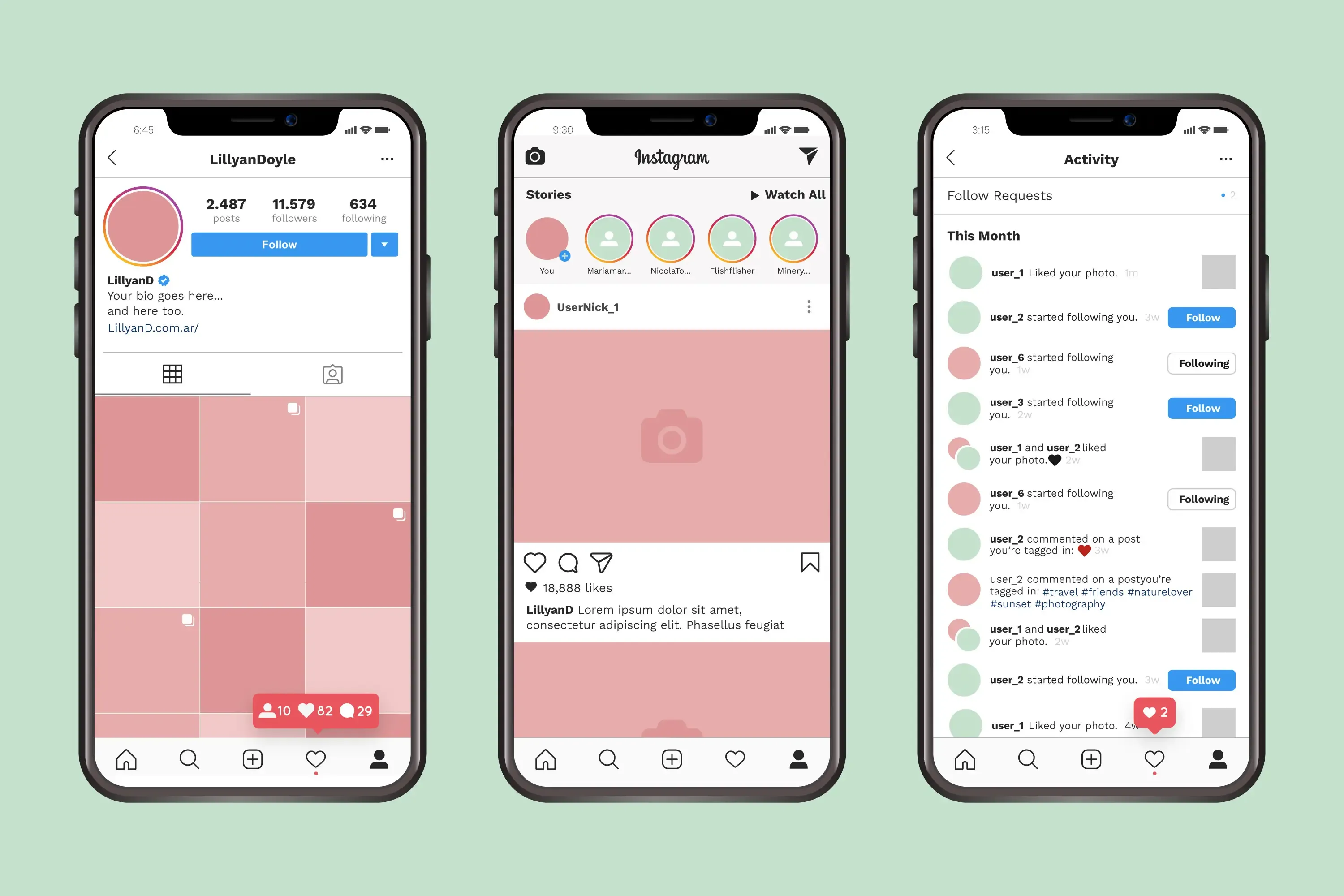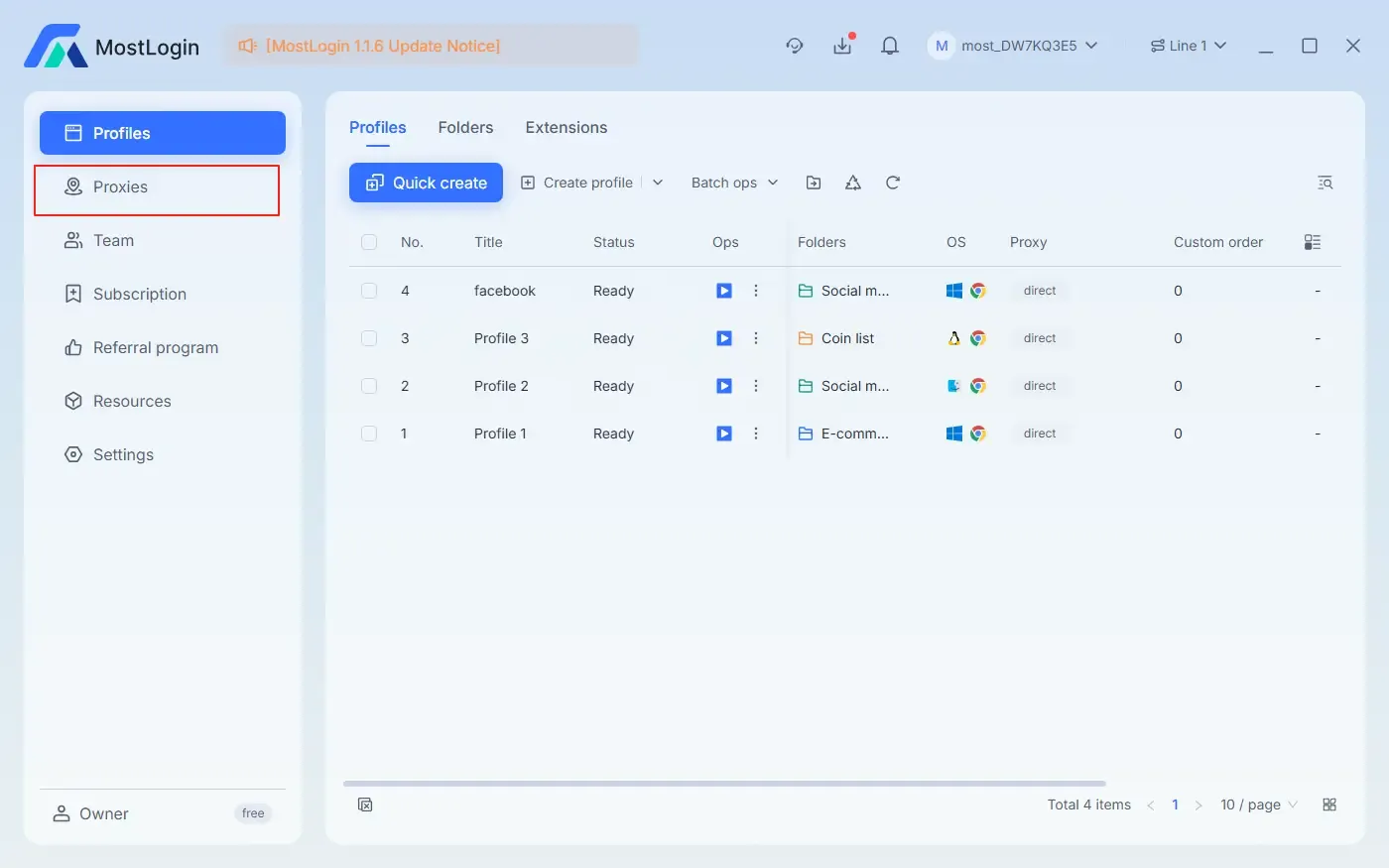Tired of Facebook bans? Get an anti-detection browser now!


Facebook, as the world’s largest social platform with over 3 billion users, is a popular choice for many foreign trade businesses to run ads, hoping to drive traffic and increase brand exposure.
However, during actual marketing operations, many companies and social media managers often face account bans, making it difficult to carry out campaigns on Facebook. So, what causes Facebook accounts to keep getting banned? And why do you need an anti-detection browser? Let’s explore the answers together with MostLogin!
Why do Facebook accounts often get banned?
1. Abnormal behavior triggers Facebook’s risk control system
Sending friend requests, liking, posting, or editing profile info aggressively right after registration
Using automation scripts or third-party tools to mass message or post
Creating too many ad accounts or switching between them too frequently
2. Account associations are detected
Multiple accounts using the same device or browser environment
Shared cookies, IP addresses, or fingerprint data between banned accounts
3. Frequent IP changes on the same account (logging in from different countries/devices)
Using virtual machines, fingerprint browsers, or proxies results in inconsistent device fingerprints
Inconsistent browser user-agent, timezone, language, or screen resolution
🔍 What Facebook can detect:
User-Agent
Fingerprint features like Canvas, WebGL, and font rendering
IP addresses from data centers (VPNs or servers)
Suspicious batch-like behavior (abnormal cookie/session patterns)
How does an anti-detection browser help prevent Facebook account bans?
Core principle: Simulate a real user environment + Isolate each account
There are many reasons for Facebook bans, but at the core, it’s usually due to abnormal device fingerprints or account associations. Anti-detection browsers help reduce these risks in the following ways:
1. Dedicated IP + Geolocation consistency
The IP address matches the browser language, timezone, and system settings
Location remains stable to avoid sudden changes (e.g., the account logs in from the U.S. yesterday and the U.K. today)
Note: IP inconsistency is one of the most sensitive indicators in Facebook’s risk control system. Using proxies combined with browser fingerprint spoofing can effectively reduce the risk of account bans.
2. Cookie and Local Storage Isolation
Each browser profile has its own:
Cookies
LocalStorage
IndexedDB
Session
It’s like each account is running on its own “separate computer,” fully isolated from others.
3. Simulate a Realistic Browser Fingerprint
| Fingerprint Parameter | Anti-Detection Browser Functionality |
|---|---|
| User-Agent | Simulate different versions of Chrome, Firefox, Safari, etc. |
| Canvas / WebGL | Simulate realistic graphic rendering values to prevent fingerprinting |
| Font / Timezone / Language | Customize system fonts, language, and timezone to match target market users |
| Device Info | Simulate different device types (mobile, tablet, PC) |
| Screen Resolution / OS / CPU Architecture | Simulate hardware characteristics consistent with users from the target country |
🔍 Purpose: To make Facebook believe you are logging in from a real user device, rather than from a bot or a studio operation.
Typical Strategies for Preventing Bans Using an Anti-Detection Browser
| Stage | Recommended Actions |
|---|---|
| ✅Before Account Registration | Set fingerprint parameters and use IP and device configuration consistent with the registration country |
| ✅ After Account Registration | Slowly nurture the account, avoid excessive operations, and gradually complete the profile |
| ✅ During Ad Campaigns | Use an independent anti-detection browser and separate payment method for each Business Manager (BM) account |
| ✅ During Team Operations | Each person uses a fixed browser configuration and fixed accounts; do not change devices or environments |
| ✅ When Verification Appears | Try to complete verification (e.g., image captcha, facial recognition) in the original environment |
Summary: The Core Value of Anti-Detection Browsers
An anti-detection browser allows each Facebook account to operate on an independent, real, and trusted computer environment. This effectively prevents account associations, reduces the risk of IP and fingerprint detection, and enables safe large-scale account management.
There are many anti-detection browsers on the market. If you’re unsure which one to choose, try MostLogin. MostLogin is a professional anti-fingerprint browser designed specifically for multi-account management and privacy protection. It utilizes advanced fingerprint masking technology, supports multiple proxies, and offers automation features to help users effectively avoid account bans and association risks. It is widely used in e-commerce operations, social media management, advertising campaigns, and more.
🚀 Recommended MostLogin Anti-Detection Browser
MostLogin lets every Facebook account run securely like an independent device — worry-free cross-border operations with stronger anti-ban protection!
If you have any questions, please check Official Help Documentation

